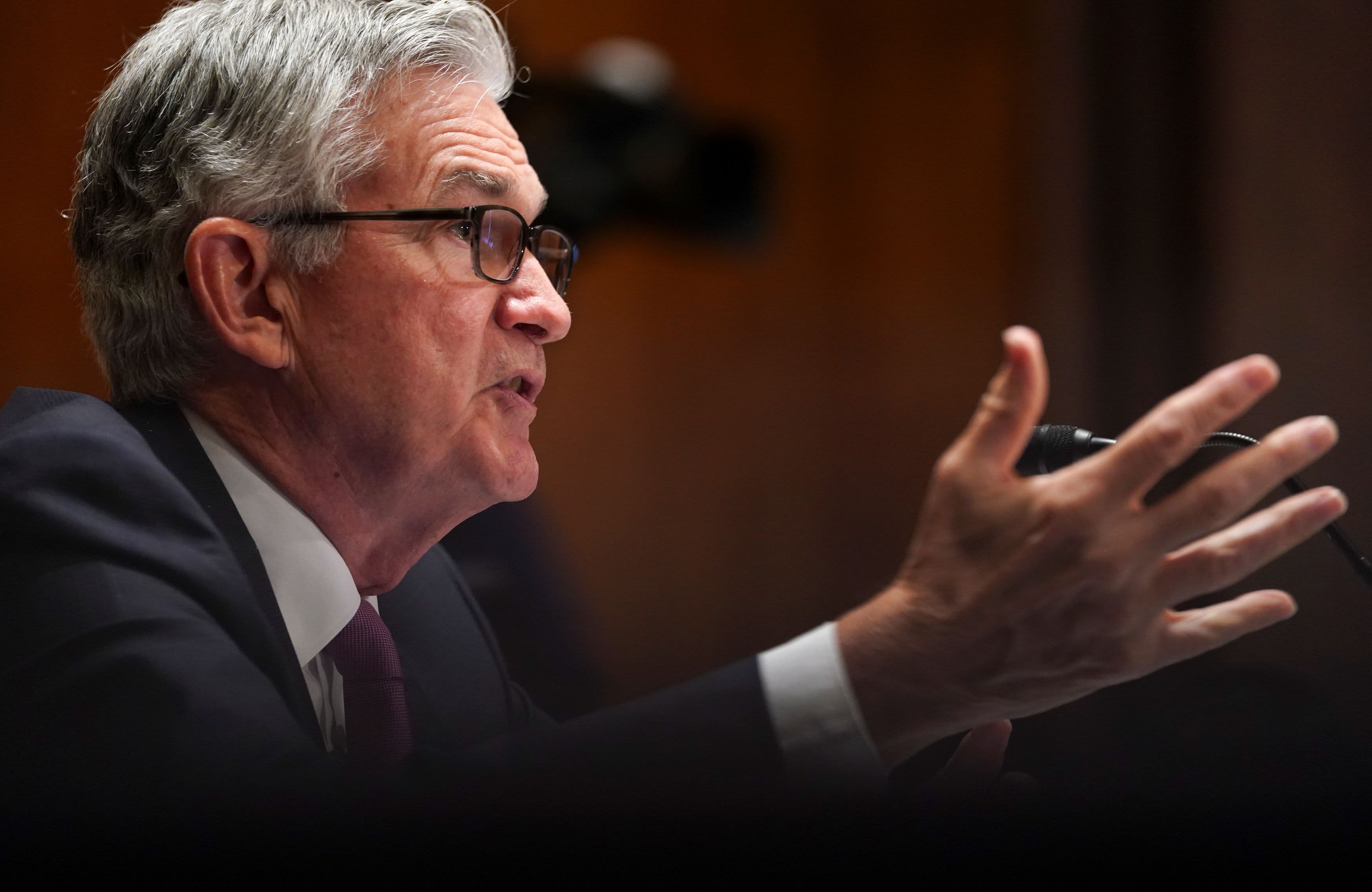Products You May Like
Amid an outcry about Federal Reserve officials owning and trading individual securities, an in-depth look by CNBC at officials’ financial disclosures found three who last year held assets of the same type the Fed itself was buying.
- Boston Fed President Eric Rosengren held between $151,000 and $800,000 worth of real estate investment trusts that owned mortgage backed securities. He made as many as 37 separate trades in the four REITS while the Fed purchased almost $700 billion in MBS.
- Fed Chair Jerome Powell held between $1.25 million and $2.5 million of municipal bonds in family trusts over which he is said to have no control. They were just a small portion of his total reported assets. While the bonds were purchased prior to 2019, they were held while the Fed last year bought $21.3 billion in munis, including one from the state of Illinois purchased by his family trust in 2016. Among the very few bonds the Fed bought last year was one from the State of Illinois.
- Richmond Fed President Thomas Barkin held $1.35 million to $3 million in individual corporate bonds purchased before 2020. They include bonds of Pepsi, Home Depot and Eli Lilly. The Fed last year opened a corporate bond buying facility and bought $46.5 billion of corporate bonds.
None of these holdings or transactions appeared to violate the Fed’s code of conduct. But they raise questions about the Fed’s conflict of interest policies and the oversight of central bank officials.
Among those questions: Should the Fed have banned officials from holding, buying and selling the same assets the Fed itself was buying last year when it dramatically widened the types of assets it would purchase in response to the pandemic?
The Fed’s own code of conduct says officials “should be careful to avoid any dealings or other conduct that might convey even an appearance of conflict between their personal interests, the interests of the system, and the public interest.”
A Fed spokesperson told CNBC that Powell had no say over the Fed’s individual municipal bond purchases and no say over the investments in his family’s trusts. A Fed ethics officer determined that the holdings did not violate government rules.
Barkin declined to comment.
Rosengren has announced he would sell his individual positions and stop trading while he is president. Dallas Fed President Robert Kaplan, who actively traded millions of dollars of individual stocks, also said he would no longer trade and would sell his individual positions. But he said his trade did not violate Fed ethics rules.
A spokesman for Rosengren told CNBC that he “made sure his personal saving and investment transactions complied with what was permissible under Fed ethics rules.”
But Dennis Kelleher, CEO of the non-profit Better Markets, said if some of these Fed actions are not against the rules, the rules need to change.
“To think that such trading is acceptable because it is supposedly allowed by Fed’s current policies only highlights that the Fed’s policies are woefully deficient,” Kelleher told CNBC.
While trading by Rosengren and Kaplan was conducted during the so-called black-out period, when Fed officials are not allowed to talk publicly about monetary policy or trade, Kelleher said during a crisis like last year, “the whole year should be considered a blackout period” because Fed officials are constantly talking and crafting policy in response to fast-moving events.
In response to CNBC questions asked in the process of our research, a Fed spokesperson released a statement Thursday saying Powell ordered a review last week of the Fed’s ethics rules surrounding “permissible financial holdings and activities by senior Fed officials.”
